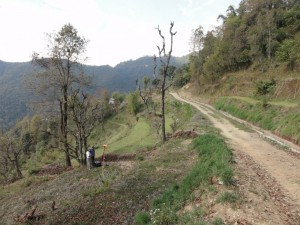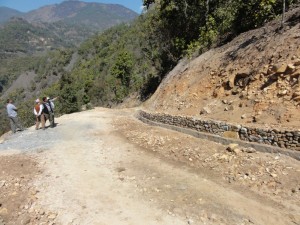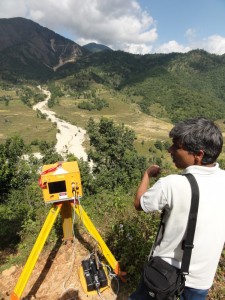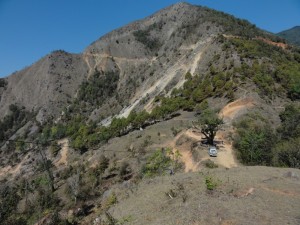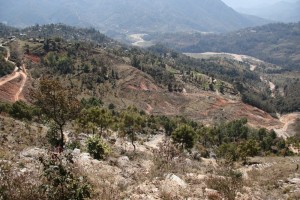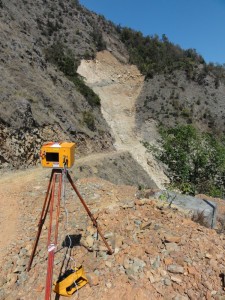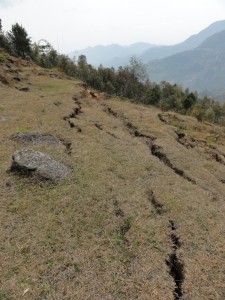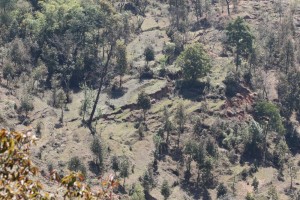EPIC team from the UNIL Risk Analysis group has recently carried out a field trip in Pokhara area, western region of Nepal. The purpose of the visit was to carry on monitoring the three bio-engineering sites using a terrestrial laser scanner. Comparing these LIDAR scans with the April 2014 ones, we expect to demonstrate the efficiency of the bio-engineering solutions along three road segments in terms of erosion/shallow landslide problems mitigation.
Moreover, the team met PhD students of the Economics department of the University of Massachusetts for collaboration on economic survey about comparison between unplanned road and bio-engineering road construction in Nepal.
The team also visited and scanned a larger very active landslide area near Bhatkhola site, one of the surveyed bio-engineering sites (about 25 km south from Pokhara). A road recently constructed in steep slopes above the landslide has generated more structural instabilities than usual. The material, which is going down during the monsoon, seems to have reactivated the large landslide below by eroding its toe. We calculated an increase of the deposit down-stream of about 5 meters between 2014 and 2015. This area is a very interesting case of study combining natural and anthropic triggering phenomenon!

